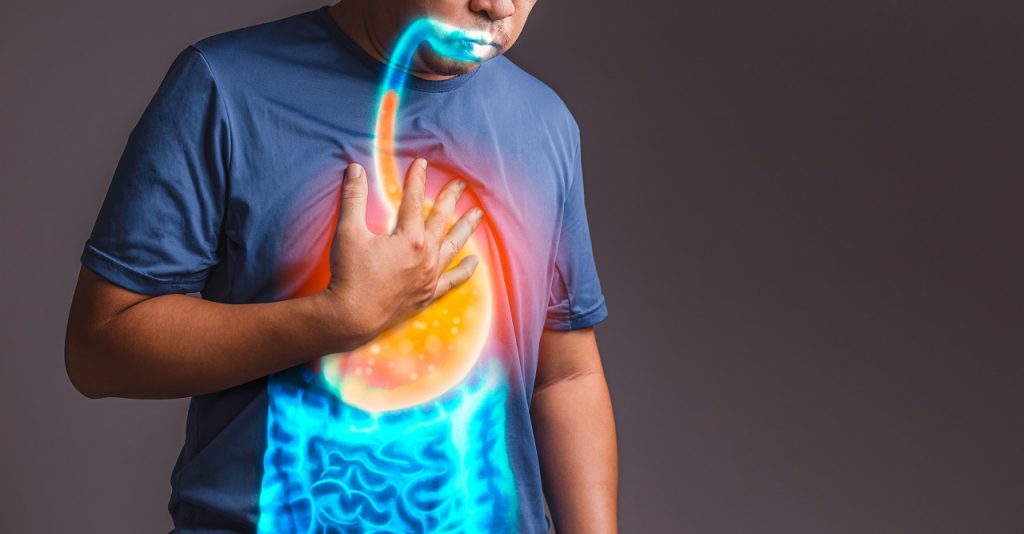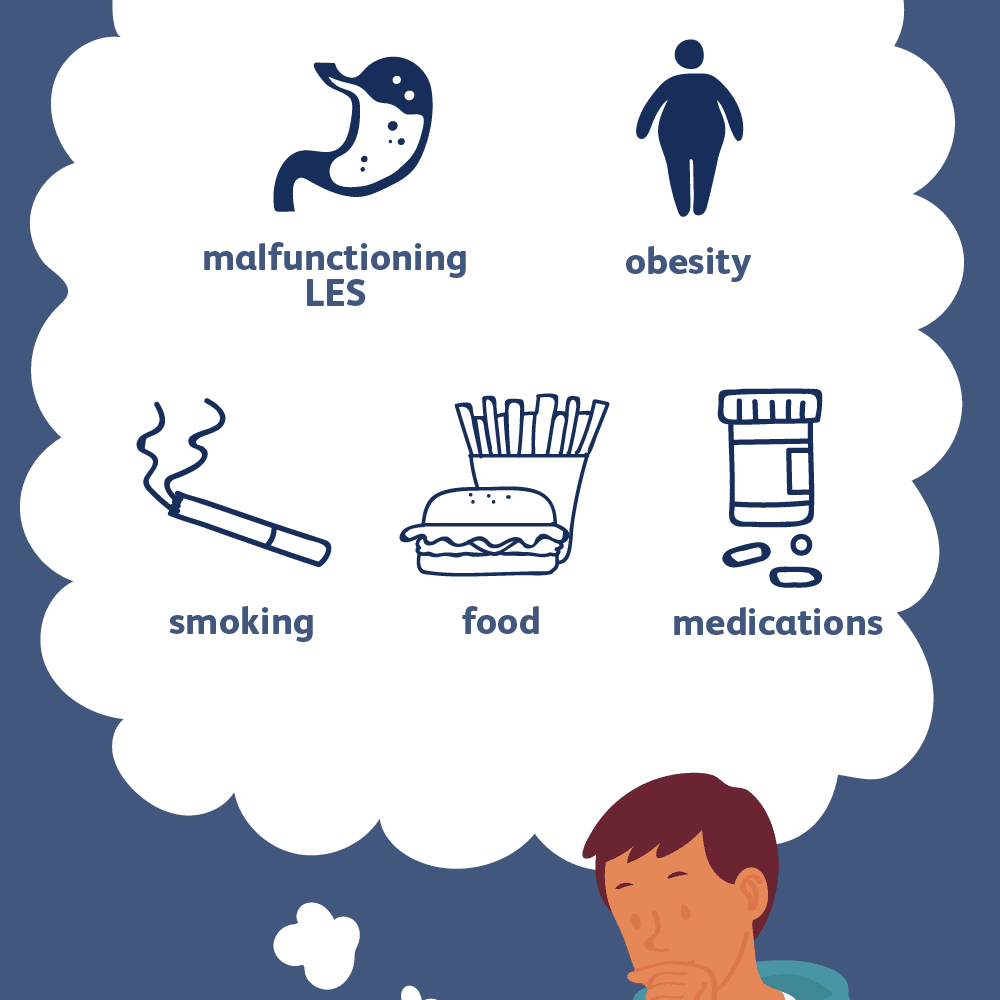ACIDITY/ HYPER ACIDITY/ GASTROESOPHAGEAL REFLUX DISEASE

WHAT IS ACIDITY?
The food we eat goes into our stomach through the esophagus. The gastric glands in your stomach create acid, which is necessary to digest the food. When the gastric glands create more acid than needed for the digestion process, you can feel a burning sensation below the breastbone. This condition is commonly known as acidity.
Acidity, also called acid reflux, is a condition that is characterized by heartburn that is felt around the lower chest area. It is a common condition that occurs when stomach acid flows back up into the food pipe. The most common acid reflux symptom is a burning sensation in the chest or pain. While most people suffer in pain, they do not realize that poor lifestyle choices are the primary reason behind acidity.
AYURVEDIC ASPECT FOR ACIDITY
In Ayurveda, acidity is referred to as Amla Pitta. By its very name, we can see that this disorder is caused by an imbalance of Pitta Dosha. The humor is governed by the elements of Fire and Water; these, in turn, govern the digestive fire and stomach enzymes.
This is also the reason why people of Pitta constitution tend to suffer from hyperacidity, peptic ulcers, and heartburn. Things that aggravate the Pitta dosha like stress, anger, hot and spicy foods, extremely hot environment can also bring on a bout of acidity.
While Pitta is usually the one blamed for acid indigestion, the Kapha dosha has its seat in the stomach and the chest. Because Kapha controls the digestive juices and generates mucus, indigestion that stems from weak metabolism and mucus congestion are common patterns in acid reflux.
You can identify a Kapha acid reflux if you have a feeling of sluggishness; feel a bitter taste in your mouth after late-night meals, chest congestion in the morning, a heavily coated tongue and a tendency to pile on weight.
CAUSES OF ACIDITY

Acidity is caused due to excess production of acid in the stomach by the gastric glands. Factors that cause acidity include:
Unhealthy eating habits
- Skipping meals or eating at irregular times
- Eating just before sleeping
- Overeating
- Consumption of spicy food
- High intake of table salt
- Diet low in dietary fiber
Excessive consumption of certain food
- Drinks such as tea, coffee, carbonated drinks, soft drinks
- Extremely spicy food
- Fat rich food such as pizza, doughnuts, and fried food
Side-effects of certain temporary medications as well as existing medications such as
- Non-steroidal anti-inflammatory drugs
- Medicines for high blood pressure
- Antibiotics
- Depression and anxiety medications
Stomach disorders
Stomach disorders such as gastroesophageal reflux disease, tumors, peptic ulcers, among others.
Other causes include
- Consumption of non-vegetarian food
- Excessive stress
- Lack of sleep
- Frequent smoking
- Lack of physical exercise
- Frequent consumption of alcohol
People who suffer from medical conditions such as asthma, diabetes, and connective tissue disorder are more prone to acidity. It is also a common problem in people who are obese, pregnant women, or women who are nearing menopause.
SYMPTOMS OF ACIDITY
- Heartburn.
- Regurgitation (food comes back into your mouth from the esophagus).
- The feeling of food caught in your throat.
- Coughing.
- Chest pain.
- Problem swallowing.
- Vomiting.
- Sore throat and hoarseness.
- Excessive crying, not wanting to eat (in babies and infants).
- Other respiratory (breathing) difficulties.
- Frequent sour taste of acid, especially when lying down.
- Hoarse throat.
- Bad breath.
- Difficulty sleeping after eating, especially in infants.
MANAGEMENT OF ACIDITY
DIET
High-fiber foods
Fibrous foods make you feel full so you’re less likely to overeat, which may contribute to heartburn. So, load up on healthy fiber from these foods:
- Whole grains such as oatmeal, couscous and brown rice.
- Root vegetables such as sweet potatoes, carrots and beets.
- Green vegetables such as asparagus, broccoli and green beans.
Alkaline foods
Foods fall somewhere along the pH scale (an indicator of acid levels). Those that have a low pH are acidic and more likely to cause reflux. Those with higher pH are alkaline and can help offset strong stomach acid. Alkaline foods include Banana, Melons, and Fennel etc.



Leave a Reply